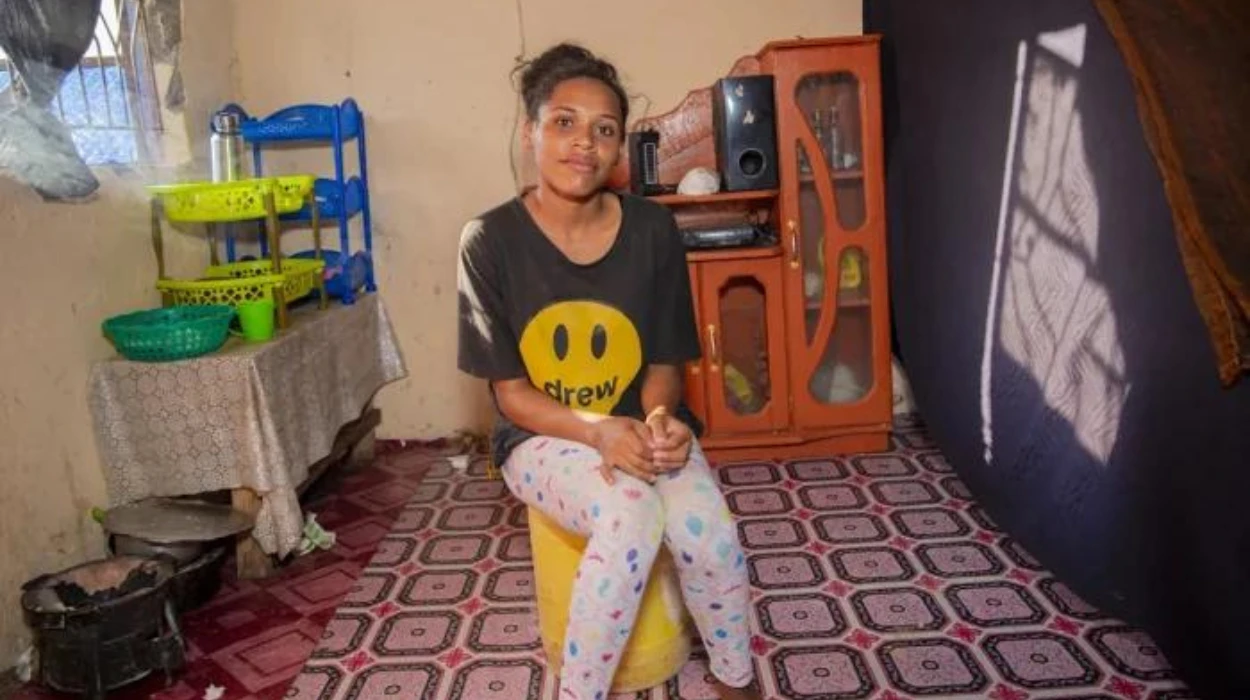Kenya (Washington Insider Magazine)- In Archer’s Post, Kenya, 17-year-old Marian Pannalossy stands out due to her light skin, a rarity in her community. She lives alone and faces ostracism. Marian believes her father was a British soldier, a man she has never met or identified. Her mother, Lydia Juma, was among many Kenyan women who claimed to have been raped by British soldiers during training exercises. Lydia passed away without ever identifying the man she said assaulted her.
Historical Complaints and Investigations
According to CNN, the British Army Training Unit Kenya (BATUK) is currently under investigation by Kenya’s National Assembly Defense, Intelligence, and Foreign Relations committee. Public hearings have been held in areas where British troops train, revealing numerous complaints about abuse and sexual assault. The committee plans to hear from BATUK officials and the British High Commissioner to Kenya later this month.
High-Profile Cases
One of the most notorious examples was Agnes Wanjiru, a 21-year-old Kenyan lady who went missing in 2012 after being sighted with British soldiers. Her body was eventually recovered in a septic tank, and while a suspect was identified, no charges were filed against the soldier responsible. Wanjiru’s family has appealed to British authorities for justice.
British High Commission’s Response
The British High Commission in Nairobi has stated that it is dedicated to conducting exhaustive investigations and that it takes all community accusations seriously. They stress that it is against the law for any staff member to engage in sexual exploitation, and they pledge to hold those found guilty accountable.
Renewed Scrutiny of British Army Operations
Britain pays Kenya approximately $400,000 annually for the right to train its soldiers in the country. Despite strong local opposition, the defense pact was renewed in 2021. The ongoing investigations have reignited scrutiny of British military activities in Kenya, highlighting long-standing allegations of rape and other crimes by soldiers dating back to the 1950s.
Victims Seeking Justice
Many Kenyan women from pastoralist communities like the Maasai and Samburu have accused the British Army of rapes in the 1970s and 80s. These women, including Ntoyie Lenkanan and Saitet Noltwalal, continue to seek acknowledgment and compensation for the violations they endured. Despite previous legal dismissals by Britain’s Ministry of Defense, a new legal path in Kenyan courts offers hope for these women.
Legal Battle Ahead
Recent changes to the defense pact allow British soldiers to be sued in Kenyan courts. Lawyer Kelvin Kubai is representing over 300 women, including Marian, who will be the lead plaintiff in the reintroduced case. Kubai is confident in the progressive Kenyan legal system’s ability to offer better redress than what was previously available in the UK.
Struggles of Abandoned Children
Many Kenyan women also struggle with recognition and support for children conceived in consensual relationships with British soldiers. Generica Namoru, who had a relationship with a British soldier in 2017, now cares for their daughter alone. Despite efforts to seek support, her appeals to both the Kenyan and British governments have been unsuccessful.
Crowdfunding for Support
To assist children like Marian and Nicole, Kubai and his team have initiated a crowdfunding campaign to support their education and legal fees. These efforts aim to provide much-needed assistance to the abandoned children of British soldiers in Kenya.
Continued Pursuit of Justice
The impacted women and those who stand by them persist in their pursuit of justice and acknowledgment for the injustices they have endured, despite the obstacles they face. There is some hope for justice and reparation for the past and present crimes committed by British soldiers in Kenya because of the ongoing legal challenges and investigations.


























